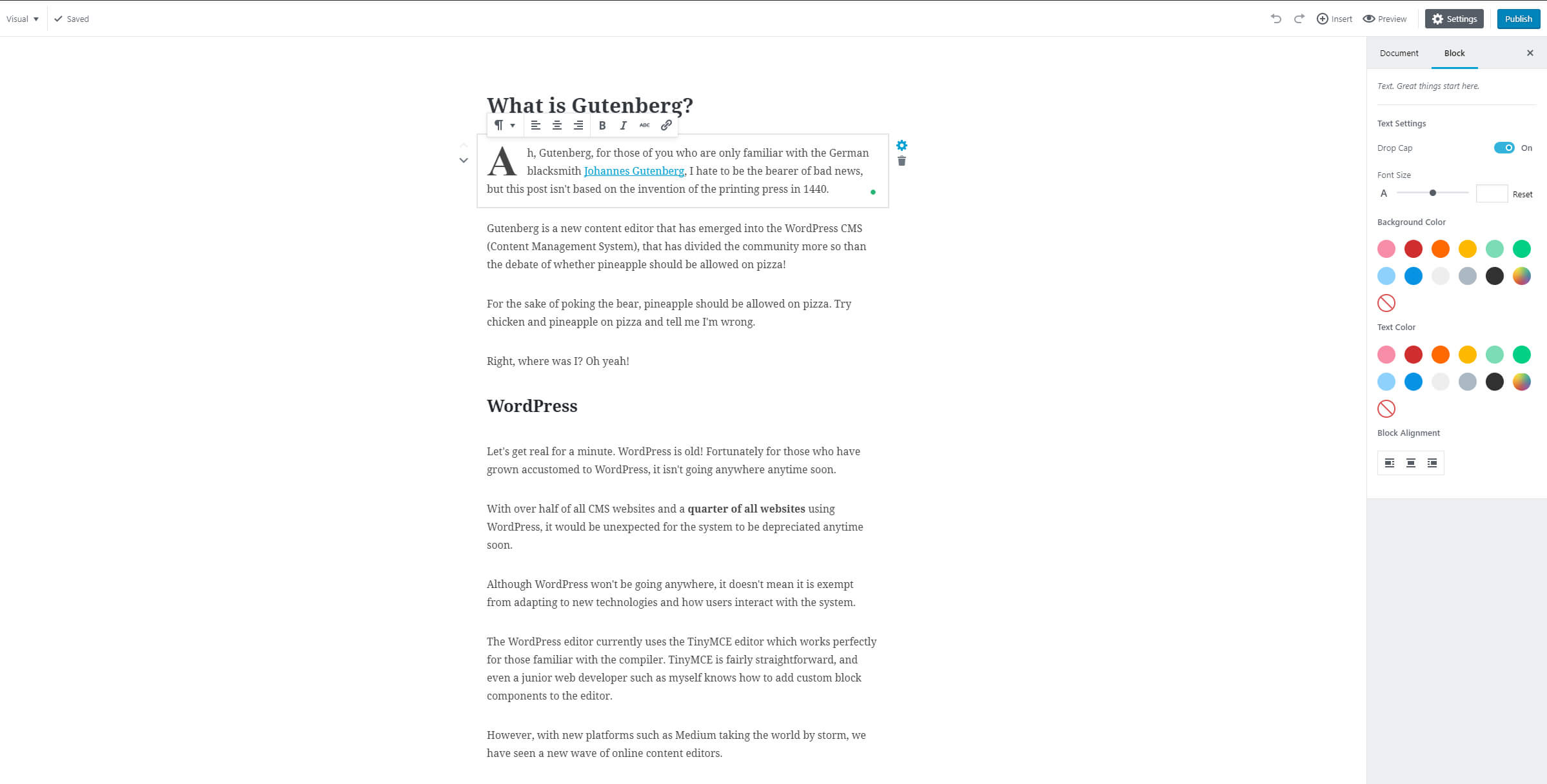What is Gutenberg?
Hey! Just so you know, this article is over 2 years old. Some of the information in it might be outdated, so take it with a grain of salt. I'm not saying it's not worth a read, but don't take everything in it as gospel. If you're curious about something, it never hurts to double-check with a more up-to-date source!
Ah, Gutenberg, for those of you who are only familiar with the German blacksmith Johannes Gutenberg, I hate to be the bearer of bad news, but this post isn't based on the invention of the printing press in 1440.

Gutenberg is a new content editor that has emerged into the WordPress CMS (Content Management System), that has divided the community more so than the debate of whether pineapple should be allowed on pizza! For the sake of poking the bear, pineapple should be allowed on pizza. Try chicken and pineapple on pizza and tell me I'm wrong. Right, where was I? Oh yeah!
WordPress
#Let's get real for a minute. WordPress is old! Fortunately for those who have grown accustomed to WordPress, it isn't going anywhere anytime soon. With over half of all CMS websites and a quarter of all websites using WordPress, it would be unexpected for the system to be depreciated anytime soon. Although WordPress won't be going anywhere, it doesn't mean it is exempt from adapting to new technologies and how users interact with the system. The WordPress editor currently uses the TinyMCE editor which works perfectly for those familiar with the compiler. TinyMCE is fairly straightforward, and even a junior web developer such as myself knows how to add custom block components to the editor. However, with new platforms such as Medium taking the world by storm, we have seen a new wave of online content editors. *and so enters Gutenberg*
The Community Divider
#Gutenberg was first introduced into the discussion by Matt Mullenweg on the 4th of January 2017 in a post detailing the main focuses of WordPress core for the year. Since then, Gutenberg has created a divide in the community that has rocked what I once saw as a very community driven project. I can see the reasoning behind wanting to move forward and upgrade the editing experience. As a front end developer which hasn't implemented WordPress into any large scale websites, I can only speak from my experience. I do understand the downsides of using Gutenberg as WordPress core, over the option of having it as an alternative option when creating content. Many themes, plugins, or any code that focuses on the TinyMCE editor could be at jeopardy without careful consideration of backwards compatibility. Heck if you want to see the divide for yourself, head over to the plugin page and check the reviews for yourself!
The Gutenberg Experience
#Look, I could go into incredible detail around the concept of blocks and how the Gutenberg editor is used when creating content. But, in all honesty, you are best off downloading the plugin (ON A DEVELOPMENT PROJECT) and giving it a spin for yourself. Be sure to leave your honest review of the editor on the WordPress Gutenberg plugin page so that your voice can be heard around the new editor.